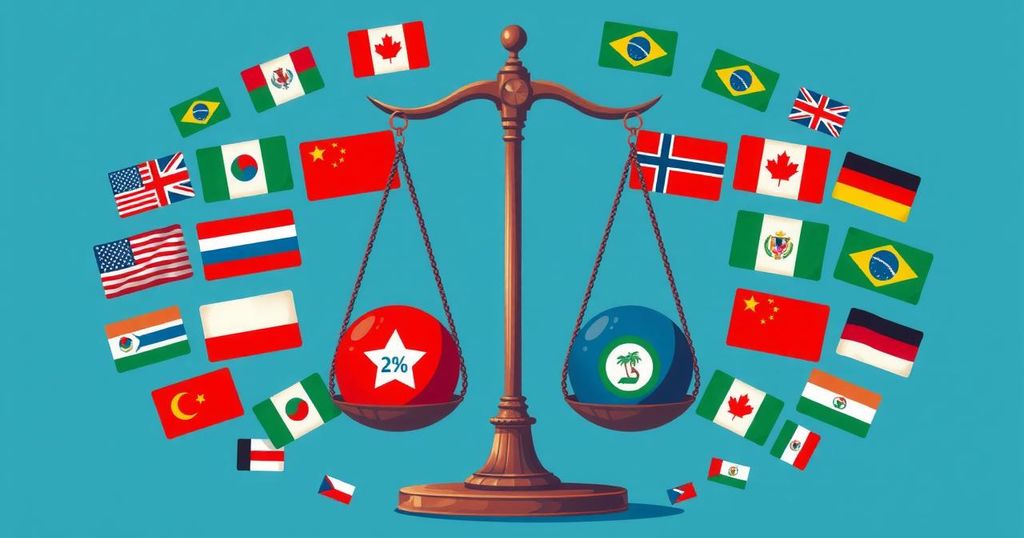White House Confirms Trump’s Reciprocal Tariffs on “Liberation Day”

The White House confirmed President Trump’s plans for reciprocal tariffs without exemptions, addressing unfair trade practices from foreign nations. Specific tariffs were highlighted, and the administration released a report detailing trade barriers affecting U.S. exports. The efforts aim to level the playing field in international trade after decades of perceived unfairness towards American businesses.
In a recent briefing, White House spokesperson Karoline Leavitt confirmed that President Donald Trump’s forthcoming “Liberation Day” tariffs would apply reciprocally, without exemptions. She highlighted several tariffs imposed on American products, asserting that such “unfair trade practices” must cease. President Trump is set to reveal these new tariffs on April 2, intended to address disparities in international trade.
Leavitt detailed specific tariffs from various countries, such as Japan’s 700% tariff on rice, a 50% tariff from the European Union on American dairy, and a 100% tariff from India on agricultural products. She framed these tariffs as detrimental to American businesses and the workforce, illustrating how they inhibit U.S. exports and have driven Americans out of work over the years.
The initiative is designed to respond to foreign nations that heavily tariff American imports to protect their own industries. The administration aims to equalize these rates, claiming that the current differential harms American enterprises and consumers, thereby justifying the introduction of reciprocal tariffs.
In parallel, the Trump administration released a comprehensive report outlining foreign trade barriers it sees as detrimental. This report details the average tariff rates and non-tariff barriers that complicate U.S. exports, including stringent safety regulations and public procurement rules that are not reciprocal.
U.S. Trade Representative Jamieson Greer emphasized that President Trump is the first modern president to fully recognize and address the various trade barriers confronting American exporters. He indicated that the administration is committed to restoring fair competition in international markets while supporting American businesses and workers against foreign unfair practices.
The report also flags certain regulatory changes in the European Union and longstanding issues related to Canada’s dairy production system as obstacles to U.S. exports. It cautions that proposals such as minimum recycled content for plastic could create additional barriers. The administration intends to collaborate with other nations on regulatory matters to facilitate exports.
The White House is ramping up its efforts to combat perceived trade injustices through the implementation of reciprocal tariffs, reflecting President Trump’s commitment to reform U.S. trade interrelations. These measures aim to create a more level playing field for American exporters while addressing longstanding trade barriers that hinder U.S. commerce abroad. As the administration prepares to detail its tariffs, it remains focused on enhancing fairness and protecting American industries.
Original Source: www.ndtv.com







